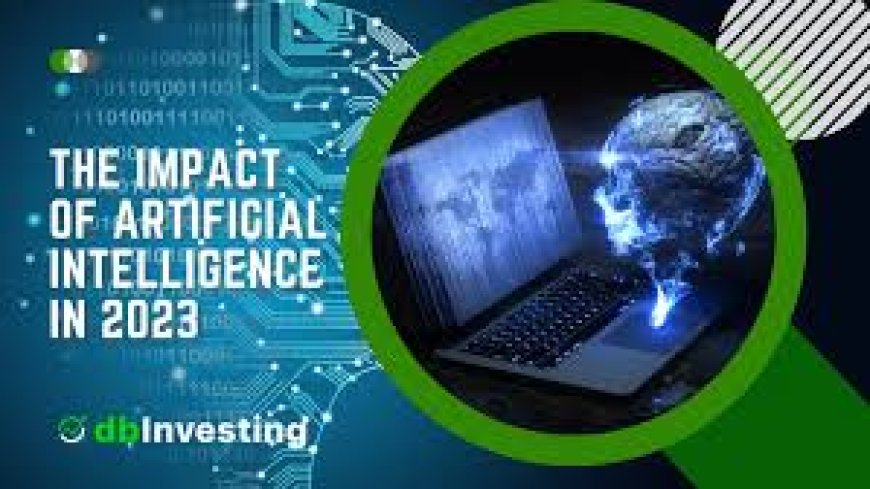The Impact of Artificial Intelligence on Society: A Comprehensive Overview

Introduction:
Artificial Intelligence (AI) has emerged as one of the most transformative technologies of the 21st century, promising to revolutionize various aspects of society. From healthcare to transportation, from finance to entertainment, AI is reshaping industries and changing the way we live, work, and interact with the world around us. In this essay, we will delve into the multifaceted impact of AI on society, exploring both its benefits and challenges.

Understanding Artificial Intelligence:
Before delving into its impact, it's essential to understand what AI is and how it works. Artificial Intelligence refers to the simulation of human intelligence processes by machines, typically through the use of algorithms and data. AI systems are designed to perform tasks that traditionally require human intelligence, such as problem-solving, decision-making, and learning from experience.
The Impact on Employment:
One of the most significant concerns surrounding AI is its impact on employment. As AI technologies automate routine tasks and processes, there is a fear that it will lead to widespread job displacement. However, while AI may eliminate certain jobs, it also creates new opportunities. For example, AI-driven automation can streamline workflows and boost productivity, leading to the creation of new jobs in areas such as AI development, data analysis, and human-machine interaction.
The Ethical Considerations:
The rapid advancement of AI also raises ethical concerns regarding privacy, bias, and accountability. AI systems rely on vast amounts of data to make decisions, raising questions about data privacy and security. Moreover, AI algorithms can perpetuate bias if they are trained on biased datasets, leading to unfair or discriminatory outcomes. Additionally, there is a lack of transparency and accountability in AI decision-making, as complex algorithms may be difficult to understand or audit. Marc Berger Laguna Beach
The Impact on Healthcare:
In healthcare, AI holds the promise of revolutionizing diagnosis, treatment, and patient care. AI-powered medical imaging systems can analyze images with greater accuracy and efficiency than human radiologists, leading to faster and more accurate diagnoses. Moreover, AI algorithms can analyze vast amounts of patient data to identify patterns and trends that may be missed by human clinicians, leading to personalized treatment plans and improved outcomes.
The Impact on Transportation:
AI is also transforming the transportation sector, with the development of autonomous vehicles and intelligent transportation systems. Autonomous vehicles have the potential to improve road safety, reduce traffic congestion, and increase mobility for individuals with disabilities or limited access to transportation. However, the widespread adoption of autonomous vehicles also raises questions about liability, regulation, and the future of jobs in the transportation industry.
The Impact on Education:
In education, AI has the potential to personalize learning experiences, adapt curriculum to individual student needs, and provide real-time feedback to teachers and students. AI-powered tutoring systems can assess student performance and tailor instruction to address areas of weakness, leading to improved learning outcomes. Moreover, AI can facilitate lifelong learning by providing access to educational resources and training opportunities tailored to individual interests and goals.
The Impact on Creativity:
While AI is often associated with automation and efficiency, it also has the potential to enhance human creativity and innovation. AI algorithms can generate music, art, and literature, blurring the lines between human and machine creativity. Moreover, AI can assist creative professionals by automating repetitive tasks, providing inspiration and feedback, and enabling new forms of artistic expression.
Conclusion:
In conclusion, the impact of artificial intelligence on society is profound and far-reaching, touching virtually every aspect of our lives. While AI offers tremendous potential to improve efficiency, productivity, and quality of life, it also raises ethical, social, and economic challenges that must be addressed. As we continue to harness the power of AI, it is essential to approach its development and deployment with careful consideration of its implications for society and humanity as a whole. Only by working together to navigate these challenges can we ensure that AI benefits all members of society and contributes to a more prosperous and equitable future.

 jameswatkin
jameswatkin 





